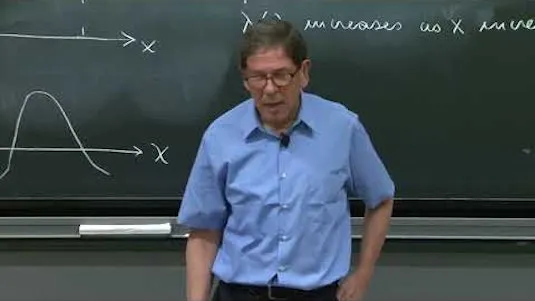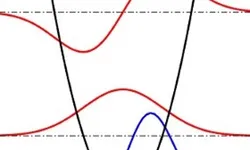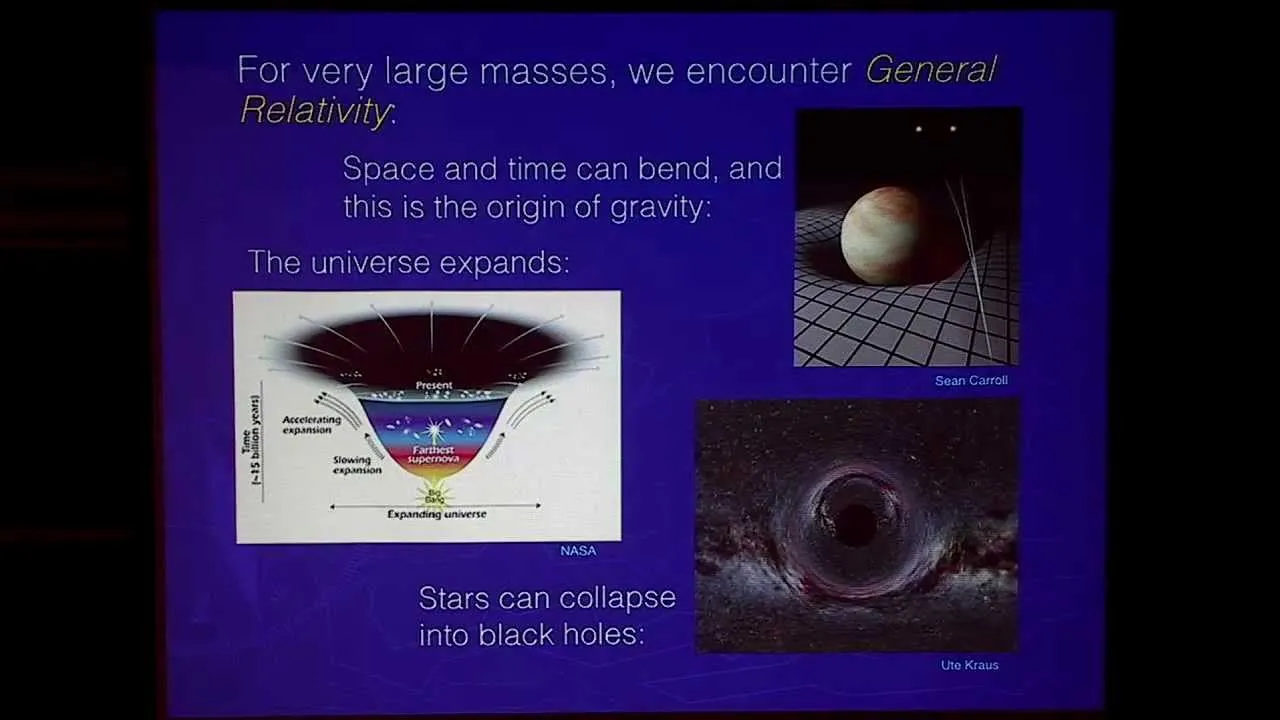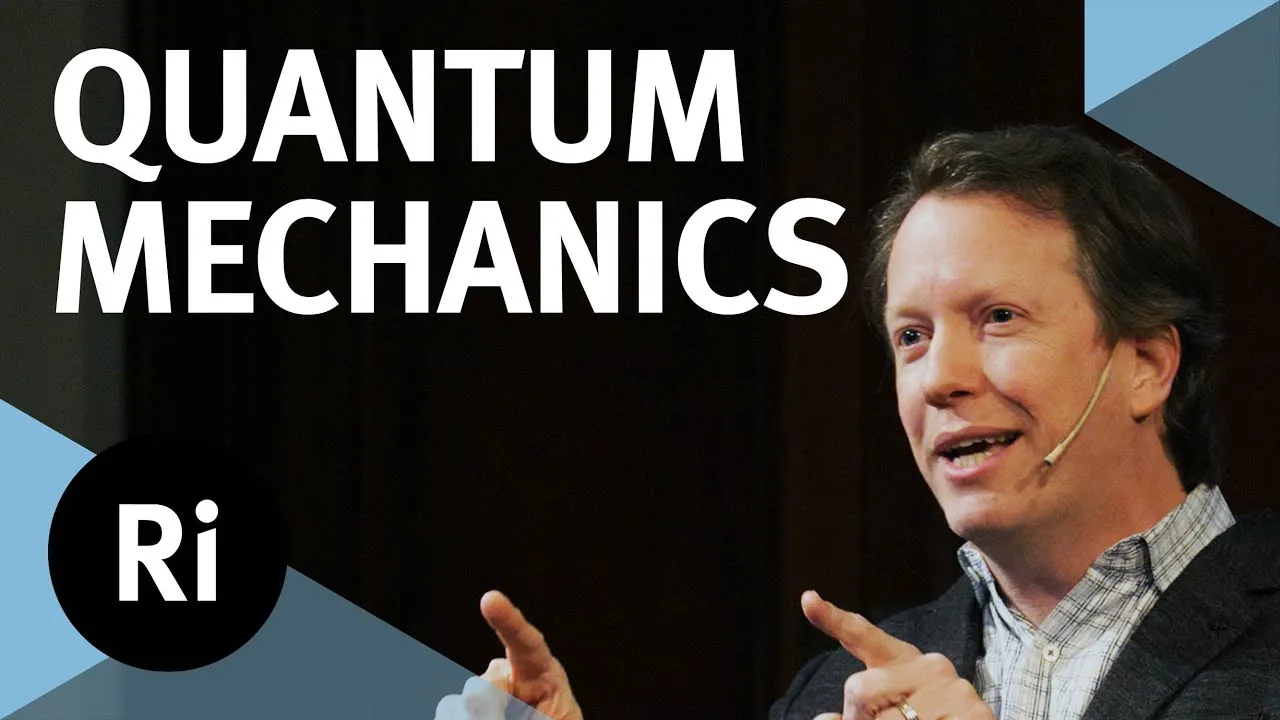
Quantum Mechanics: Wavefunctions Operators and Expectation Values 
This course covers the fundamentals of quantum mechanics, including de Broglie waves, wavefunctions, probability interpretation, the Schrodinger equation, inner products, Hermitian operators, and expectation values. Students will gain an understanding of these concepts and how they are used to describe the behavior of particles on the quantum level. ▼
ADVERTISEMENT
Course Feature
![]() Cost:
Cost:
Free
![]() Provider:
Provider:
Edx
![]() Certificate:
Certificate:
No Information
![]() Language:
Language:
English
![]() Start Date:
Start Date:
12th Sep, 2018
Course Overview
❗The content presented here is sourced directly from Edx platform. For comprehensive course details, including enrollment information, simply click on the 'Go to class' link on our website.
Updated in [March 06th, 2023]
[Course Overview]
This course provides an introduction to the fundamentals of quantum mechanics. It covers topics such as de Broglie waves, the wavefunction, the Schrodinger equation, inner products, Hermitian operators, time-evolution of wave-packets, Ehrenfest's theorem, and uncertainty relations. This course is the first in a series of three courses based on MIT 8.04: Quantum Mechanics I. After completing this course, learners will be ready to tackle the Mastering Quantum Mechanics course series on edX, 8.05x.
[Why to Learn]
Quantum mechanics is a cornerstone of physics and is essential for understanding the behavior of matter on the atomic and subatomic level. This course provides a comprehensive introduction to the fundamentals of quantum mechanics, which is essential for anyone interested in pursuing a career in physics or related fields. It also provides a solid foundation for further study in quantum mechanics.
[Development Paths]
This course is the first in a series of three courses based on MIT 8.04: Quantum Mechanics I. After completing this course, learners will be ready to tackle the Mastering Quantum Mechanics course series on edX, 8.05x. This series will provide a more in-depth exploration of quantum mechanics and its applications.
[Related Learning Suggestions]
In addition to the Mastering Quantum Mechanics course series, learners may also be interested in exploring other courses related to quantum mechanics. These include courses on quantum computing, quantum information theory, and quantum field theory. Additionally, learners may be interested in exploring courses related to other areas of physics, such as classical mechanics, thermodynamics, and electromagnetism.
[Applications]
Upon completion of this course, students will be able to apply the concepts of quantum mechanics to solve problems in physics and chemistry. They will be able to use the Schrodinger equation to calculate wavefunctions and expectation values, and to understand the time-evolution of wave-packets. They will also be able to use the uncertainty principle to analyze the behavior of particles in 1D potentials. Finally, they will be able to use the concepts of scattering and central potentials to analyze the behavior of particles in 3D potentials.
[Career Paths]
1. Quantum Physicist: Quantum physicists are responsible for researching and developing theories and models related to quantum mechanics. They use their knowledge of quantum mechanics to develop new technologies and solve complex problems. They also work with other scientists to develop new applications of quantum mechanics. As the field of quantum mechanics continues to grow, the demand for quantum physicists is expected to increase.
2. Quantum Engineer: Quantum engineers are responsible for designing and building systems and devices that use quantum mechanics. They use their knowledge of quantum mechanics to develop new technologies and solve complex problems. They also work with other engineers to develop new applications of quantum mechanics. As the field of quantum mechanics continues to grow, the demand for quantum engineers is expected to increase.
3. Quantum Computing Researcher: Quantum computing researchers are responsible for researching and developing new algorithms and technologies related to quantum computing. They use their knowledge of quantum mechanics to develop new technologies and solve complex problems. They also work with other researchers to develop new applications of quantum mechanics. As the field of quantum computing continues to grow, the demand for quantum computing researchers is expected to increase.
4. Quantum Information Scientist: Quantum information scientists are responsible for researching and developing new theories and models related to quantum information. They use their knowledge of quantum mechanics to develop new technologies and solve complex problems. They also work with other scientists to develop new applications of quantum mechanics. As the field of quantum information continues to grow, the demand for quantum information scientists is expected to increase.
[Education Paths]
1. Bachelor of Science in Physics: This degree program provides students with a comprehensive understanding of the fundamental principles of physics, including quantum mechanics. Students will learn about the mathematical and physical principles of quantum mechanics, as well as the application of these principles to real-world problems. This degree program also provides students with the opportunity to specialize in a particular area of physics, such as astrophysics, biophysics, or nanotechnology.
2. Master of Science in Quantum Mechanics: This degree program provides students with an in-depth understanding of the principles of quantum mechanics. Students will learn about the mathematical and physical principles of quantum mechanics, as well as the application of these principles to real-world problems. This degree program also provides students with the opportunity to specialize in a particular area of quantum mechanics, such as quantum computing, quantum information theory, or quantum optics.
3. Doctor of Philosophy in Quantum Mechanics: This degree program provides students with an advanced understanding of the principles of quantum mechanics. Students will learn about the mathematical and physical principles of quantum mechanics, as well as the application of these principles to real-world problems. This degree program also provides students with the opportunity to specialize in a particular area of quantum mechanics, such as quantum computing, quantum information theory, or quantum optics.
4. Master of Science in Applied Quantum Mechanics: This degree program provides students with an in-depth understanding of the principles of quantum mechanics and their application to real-world problems. Students will learn about the mathematical and physical principles of quantum mechanics, as well as the application of these principles to areas such as quantum computing, quantum information theory, and quantum optics. This degree program also provides students with the opportunity to specialize in a particular area of quantum mechanics.
The development trends in quantum mechanics are rapidly advancing, with new applications being developed in areas such as quantum computing, quantum information theory, and quantum optics. As the field of quantum mechanics continues to grow, so too will the demand for professionals with advanced degrees in this field.
Course Provider

Provider Edx's Stats at AZClass
Discussion and Reviews
0.0 (Based on 0 reviews)
Explore Similar Online Courses

Keras - Python Deep Learning Neural Network API

Learning ECMAScript 6+ (ES6+) Online Class

Python for Informatics: Exploring Information

Social Network Analysis

Introduction to Systematic Review and Meta-Analysis

The Analytics Edge

DCO042 - Python For Informatics

Causal Diagrams: Draw Your Assumptions Before Your Conclusions

Whole genome sequencing of bacterial genomes - tools and applications

Foundations of Quantum Mechanics

Gravity and Quantum Mechanics - The Quest for Unification

A Brief History of Quantum Mechanics - with Sean Carroll
 Related Categories
Related Categories
 Popular Providers
Popular Providers
Quiz
 Submitted Sucessfully
Submitted Sucessfully
1. What is the first course in the series?
2. What is the basis of this course?
3. What is the next course after completing the 8.04x series?
4. What is the first course in the series based on MIT 8.04?
Correct Answer: Quantum Mechanics: Wavefunctions, Operators, and Expectation Values


Start your review of Quantum Mechanics: Wavefunctions Operators and Expectation Values